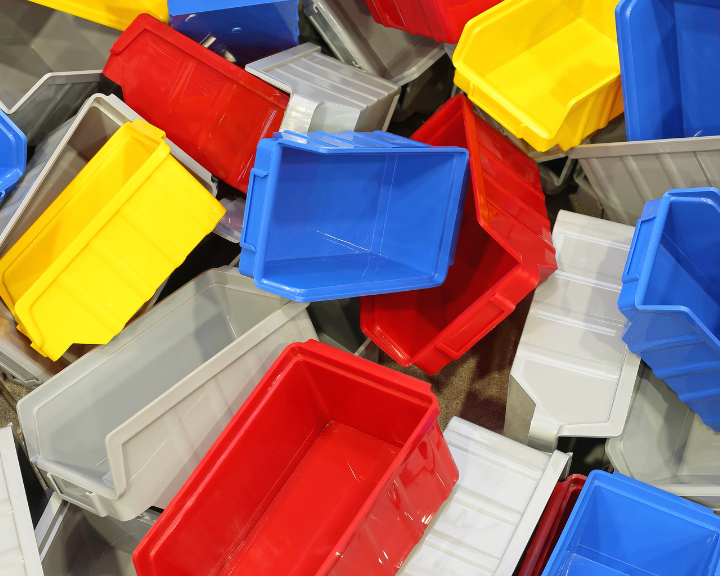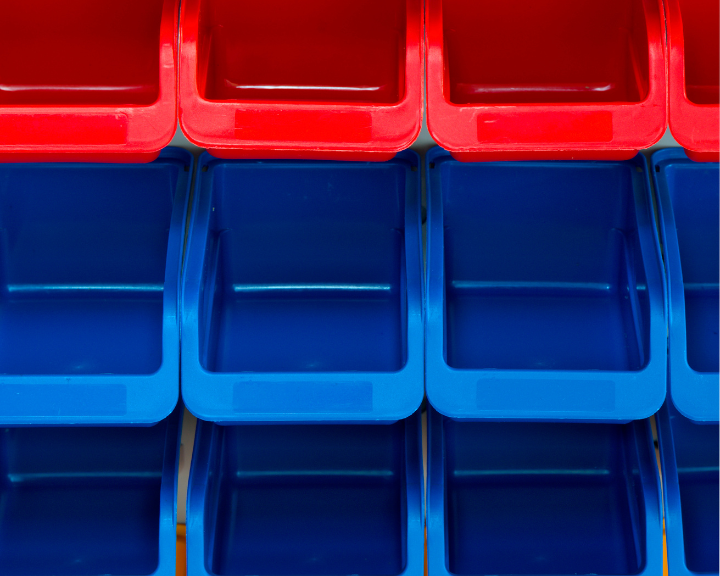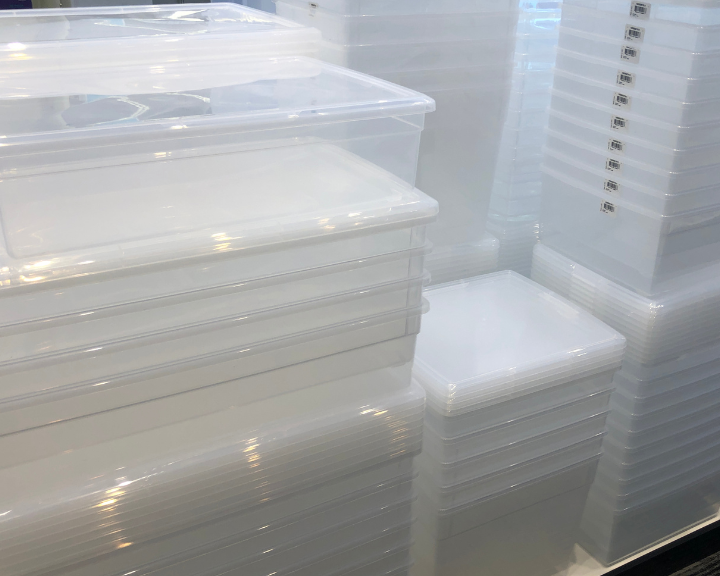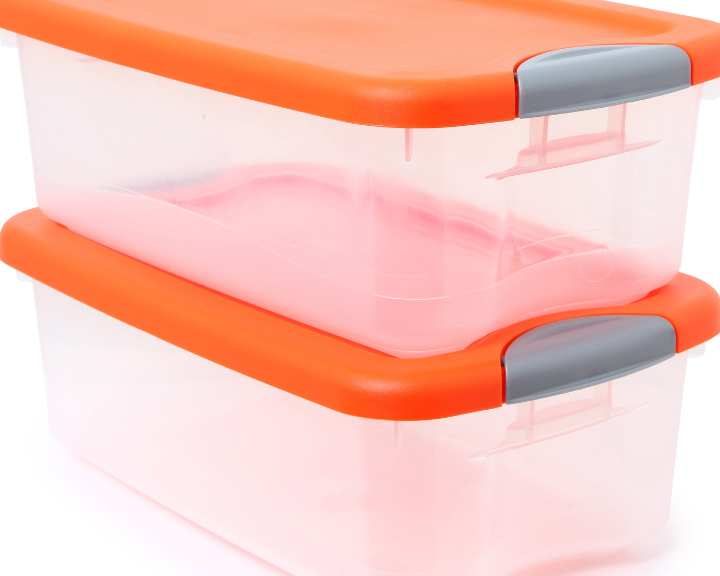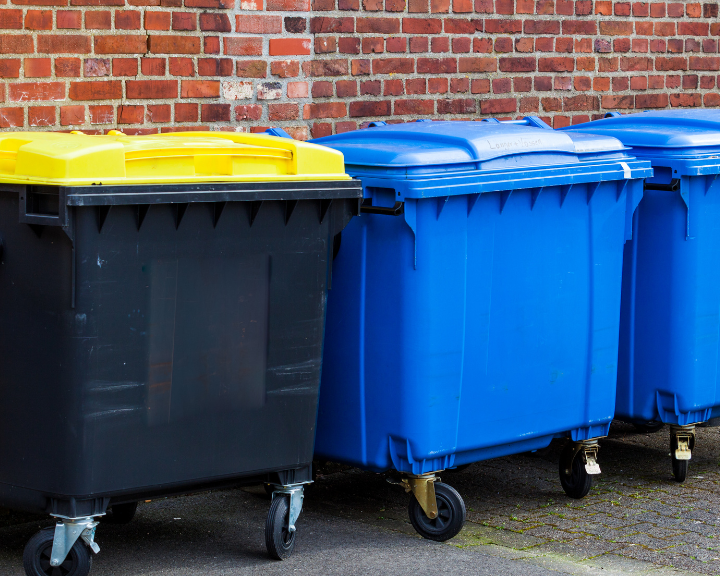Plastic bins have long been acknowledged for their practical and efficient utility in both manufacturing and agricultural industries. From easy transport, organization, and storage benefits to unexpected uses beyond their original domains – such as this article exploring unconventional uses beyond farming and manufacturing – plastic bins have revolutionized operations and gained widespread acceptance as reliable storage containers. Let’s look at some creative uses for these containers! Let’s get going!
Versatile Storage Solutions for Retail and Commercial Spaces
Retail and commercial establishments rely on efficient storage and management to ensure that their operations are running efficiently. Finding the best storage solutions can result in significant increase in terms of efficiency as well as accessibility. It can also help in getting the most value from available space. One option which has proved effective and adaptable in these circumstances is the use of the plastic containers.
Plastic bins have a myriad of benefits, making them perfect for both commercial and retail spaces. These are the top benefits:
- Durability: Plastic bins are made to last for a long time and are durable. Unlike cardboard boxes or other temporary storage options, plastic bins can withstand frequent handling without wearing down or becoming damaged.
- Space Optimization: In commercial and retail spaces in commercial and retail spaces, every square millimeter is important. Plastic bins come in a variety of dimensions and shapes, which allows efficient use of space. The stackable design allows vertical storage, making it possible to make the most of the floor space. With bins made of plastic they can be efficient and compact storage solutions that let space for other uses.
- Organization: Plastic bins provide an organized storage option and should be utilized as part of effective inventory management efforts in retail and commercial settings. It is possible to categorize items materials, supplies, or even items and make it easier to find specific items quickly. In addition their transparent design makes it possible the easy identification of the contents, which can reduce the amount of time spent looking for particular items.
- Easy Maintenance: Plastic bins are incredibly easy to clean and maintain. They can be wiped down with a cloth or easily washed with soap and water, ensuring a sanitary storage environment. Non-porous plastic surfaces stop the spreading of contaminants or bacteria and provide an additional degree of hygiene.
- Versatility: Plastic bins have multiple uses across both commercial and retail settings. From storing products, equipment, or excess inventory to organizing supplies in warehouses or backrooms, plastic bins are adaptable to various needs. Their adaptable nature makes them the ideal solution for businesses of any shape or size.
- Cost-Effective: Plastic bins offer cost-effective storage solutions when compared with alternative options. Their affordability reflects their durability and long life; an investment in them could save money over time by eliminating regular replacement needs.
In the end the plastic bins are versatile storage solutions for commercial and retail areas. Their endurance, durability, space optimization capacity, organizational capabilities, simple maintenance, apprehension and low cost are the reasons they’re a good option for companies. Utilizing plastic bins, commercial and retail spaces can be organized and efficient storage systems that aid in the smooth running of operations and improved productivity.
Ensuring Efficiency and Hygiene in Healthcare
Healthcare professionals require an extremely high level of efficiency, organization and cleanliness to ensure top-quality treatment to patients. Plastic bins are vital to meet the needs of healthcare facilities. Discover the numerous ways that plastic bins can be utilized in healthcare settings to boost effectiveness and improve hygiene.
- Storage and Organization
By categorizing equipment, supplies, and medicines into specific bins, health professionals are quickly able to locate what they require – decreasing time wasted searching and increasing efficiency of workflow – thus ultimately improving healthcare services overall.
- Sterilization and Contamination Control
Healthcare facilities are awash in hygiene to avoid the spread of infection. Plastic bins are constructed with materials that are quickly cleaned as well as sterilized. Simply clean them with disinfectants or use specific techniques to sanitize them effectively, eliminating all contaminants. Furthermore, smooth surfaces on plastic bins help avoid dust accumulation and bacteria accumulation which reduces cross-contamination risk.
- Transportation and Handling
Plastic bins can be very useful in transporting and storing medical supplies and equipment, ensuring the durability and toughness needed to withstand frequent moves. From moving supplies between rooms or transporting essential medical equipment, plastic bins provide a secure and reliable transport option with their stackable design providing efficient space utilization allowing smooth transport.
- Waste Management
Waste disposal in healthcare settings is of vital importance in order to maintain cleanliness and stop infections from spreading, making use of plastic bins a safe method. Furthermore, each bin is uniquely marked or color coded to identify different forms of waste for proper segregation according to waste management protocols.
- Inventory and Supply Chain Management
Healthcare requires effective inventory and supply chain management to ensure essential items remain available at all times, which plastic bins help achieve by offering visible storage system with labeled storage locations and organizing features that allow healthcare staff to easily track availability/expiration dates of supplies for timely replenishing efforts and reduced waste.
Supporting Sustainable Waste Management as Recycling Containers
With more and more attention being focused on sustainability and environmental conservation, plastic bins have found new life as recycling containers. Used to separate various forms of recyclable waste efficiently and organize it for later sorting into containers for recycling, they make this process much more streamlined than before. Color-coded bins make sorting materials such as paper, plastic, glass, and metal much simpler for users – while encouraging recycling practices which help preserve our planet through protecting it through plastic bins!
Exploring the Creative Side of Plastic Bins: Craft and DIY Projects
Plastic bins serve more than just practical purposes; they’re also an incredible source of creative expression! Crafters and DIY enthusiasts have discovered the creative potential in plastic bins to produce unique yet useful items – everything from storage solutions to home decor items! Plastic bins can even be transformed into planters, organizers or lampshades using just some creativity and basic tools – the possibilities truly are limitless!
John Proctor, who manages one of the fence companies in tyler texas, had seen his fair share of unique fencing solutions, but the one his customer, Tom Greene, had come up with was nothing short of ingenious. Tom, a resourceful farmer with a penchant for sustainability, had used a stack of recycled plastic bins to create a temporary fence for his rambunctious herd of goats. The colorful bins, originally meant for storing household items, now stood upright, forming a vibrant and surprisingly effective barrier against his goats’ escape attempts. John couldn’t help but admire the creativity that went into repurposing the bins, and he made a mental note to recommend more eco-friendly fencing options to other clients. After all, in the world of fencing, it seemed that innovation knew no bounds.
Plastic bins have certainly revolutionized manufacturing and farming industries. However, their value extends beyond the traditional uses. They are seamlessly integrated into commercial and retail spaces as well as healthcare facilities, methods of managing waste, as well as innovative projects. The flexibility, strength and cost-effectiveness of plastic bins are an the ideal choice for unusual use. In the future, as technology advances and innovation continues, we will see new and innovative applications for plastic bins. Explore the possibilities, and discover ways to make use of the simple yet useful instruments.
